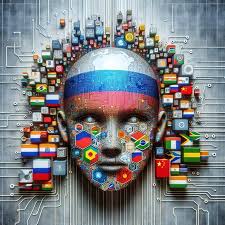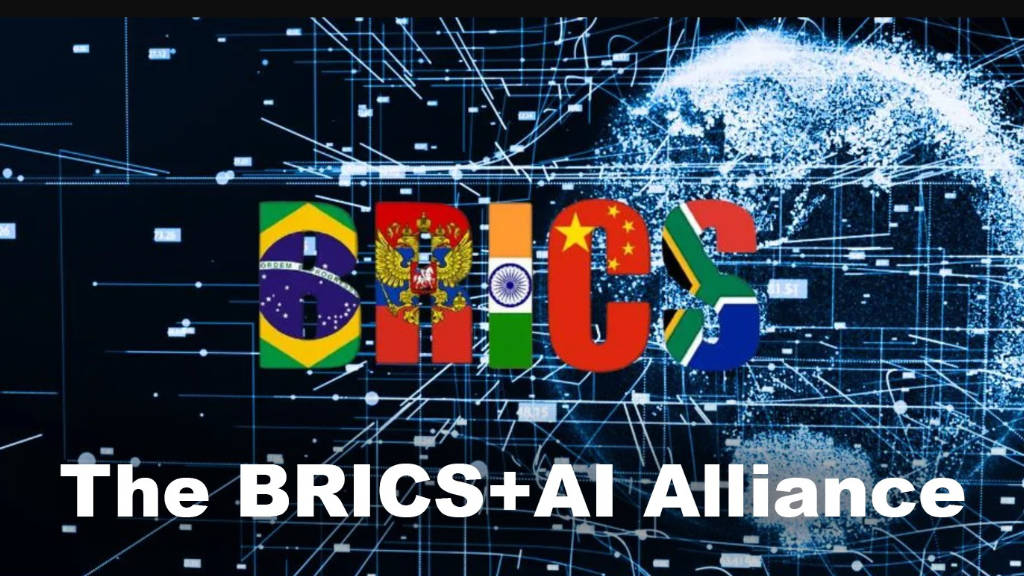Russia’s State-Owned Direct Investment Fund (RDIF) has announced the launch of a strategic alliance within the BRICS to jointly develop Artificial Intelligence (AI), according to Kirill Dmitriev, the RDIF chief executive.
RDIF’s government mandate is to make investments in high-growth sectors of the Russian economy, as well as co-invest alongside the world’s largest institutional investors, direct investment funds, sovereign wealth funds and leading companies. Its reserved capital is the equivalent of US$10 billion.
Over 20 companies from six of the bloc’s member-states (Russia, China, India, Brazil, Iran and the UAE) have already joined the BRICS+AI alliance. Another 50+ BRICS institutions and businesses are also set to join, including universities, medical companies, pharmaceutical developers, financial infrastructure developers, telecommunications innovators, and electric batteries and semiconductor manufacturers. The new alliance will focus on digital technologies in the public and commercial sectors, according to RDIF.
Dmitriev said “This is particularly important given the fact that many Western countries are seeking to limit the access of BRICS to AI technologies.”
The BRICS+AI Alliance will promote joint research, technology development, and regulation among member nations. Despite Western sanctions that have hampered Russia’s access to essential AI hardware like microchips, domestic leaders like Sberbank and Yandex are driving innovation with generative AI models such as GigaChat and YandexGPT.
Russia also has ambitious plans to integrate AI across its economy, targeting a contribution of ₽11.2 trillion (US$106 billion) to GDP by 2030 and training 80% of its workforce in AI skills. While Russia currently lags behind global leaders like the United States and China in AI development, this alliance could mark a turning point in Moscow’s technological aspirations.
Potentially, the BRICS+AI Alliance could lead to the development of AI systems that operate independently of Western technology and influence. Such developments could significantly alter global power dynamics, introducing new players into the AI race and reducing the technological gap between the BRICS nations and Western countries. It could also stimulate innovation and competition within global markets, reshaping economic and technological landscapes.

The Russian President, Vladimir Putin, has also been taking part in the “AI Journey” conference in Moscow, where he spoke about Russian development in AI and plans to take this forward. In his speech, Putin said that Russia needs to gain traction as well and come up with truly innovative, out-of-the-box solutions, saying that “In just a year, artificial intelligence technologies have transformed entire industries beyond recognition, even the creative industries, where human sense of harmony and beauty had seemed absolutely irreplaceable. To be honest, I thought this was impossible, but these boundaries are being erased now.
Generative models can create high-quality music in various genres, simultaneously translate speech into dozens of languages in real time, produce videos that are hardly distinguishable from real footage, create video games using text or pictures, as well as 3D models, digital twins of complex systems. In fact, this means that a revolution is happening in engineering, in the design and construction of fundamentally new components and entire devices.
Artificial intelligence now reads and analyses even hard-to-read images and videos, regardless of weather conditions or other interferences. This opens up entirely different opportunities for robotics, for the creation of unmanned vehicles for land, air and water.
Generative AI tools predict natural disasters quite accurately. They can analyse tables and diagrams and solve the most complex mathematical and physics problems in just a few short steps.
The fact that Russian domestic companies are quickly implementing these innovations and achievements in their work and are moving in lockstep with time is vitally important. For example, Sber released a GigaChat MAX service based on innovative solutions, and Yandex presented the fourth generation of Yandex Chat. T-Bank, MTS, and VK have made great strides in developing their neural models. As you are aware, the restrictions imposed on Russia and the Russian economy push us to look for new solutions, and you are effectively finding them.
Clearly, the availability of our own research potential in the field of the new generation of artificial intelligence is one of the key prerequisites for scientific, technological and, importantly, our country’s worldview sovereignty.
To be able to determine the future of Russia, we must create such technologies ourselves and, of course, do so in collaboration with those who are willing to work.
I would add in this regard that our activities in the field of artificial intelligence should rely on a solid foundation created by outstanding Russian philosophers, secular and religious thinkers, historians, linguists, and recognised authorities in the field of humanitarian and cultural knowledge. Of course, that includes scholars, mathematicians, specialists in the field of cybernetics and IT.
In this regard, we propose to hold an international foresight in Russia, a kind of strategic session to discuss the future of artificial intelligence, and to put our heads together regarding the future of this powerful technology. This will allow us to promptly respond to emerging challenges and risks, to use outside-the-box solutions and opportunities, and to outline new areas for scientific breakthroughs and partnerships.”
Further Reading
G20 Countries Interested In Joining BRICS New Development Bank

 Русский
Русский













